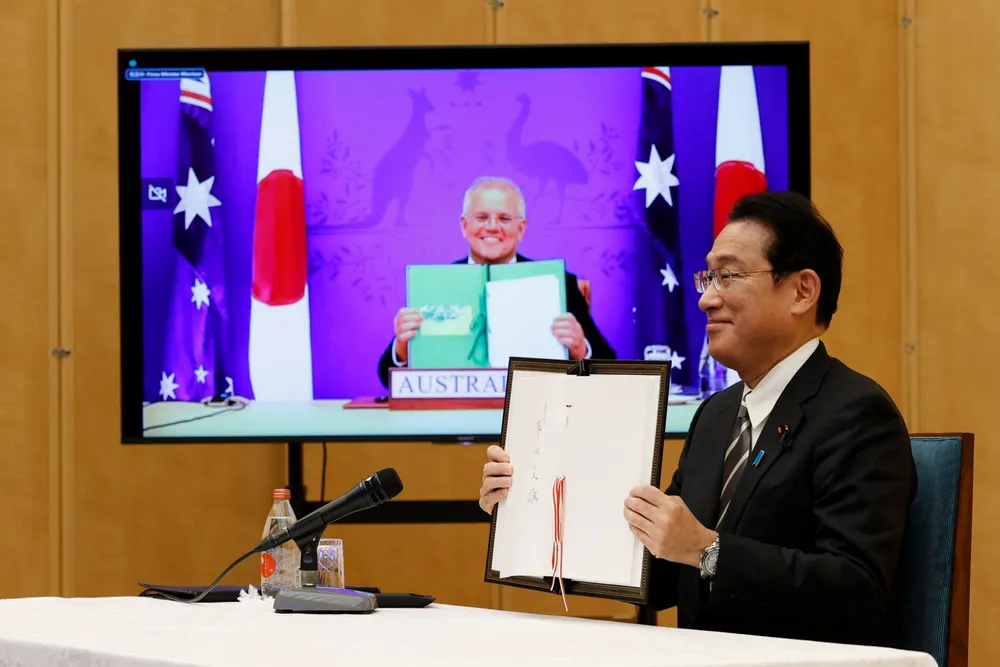Australia targets hydrogen exports to Japan as pair also step up military cooperation
Nations step up cooperation amid increasing tensions in the South China and East China seas

Nations step up cooperation amid increasing tensions in the South China and East China seas
